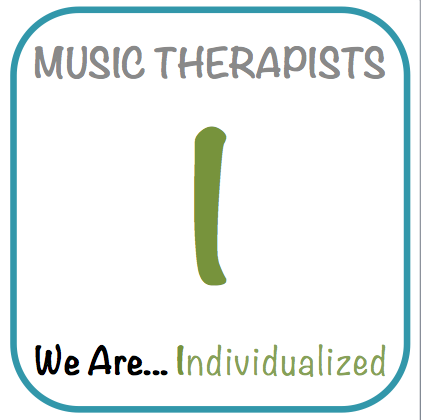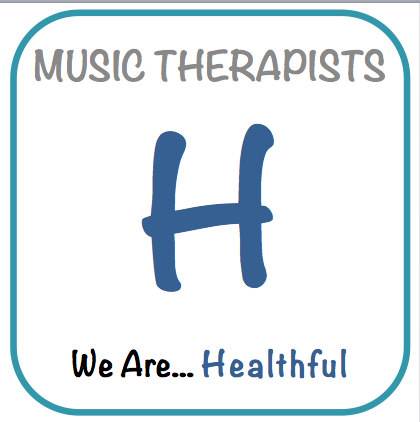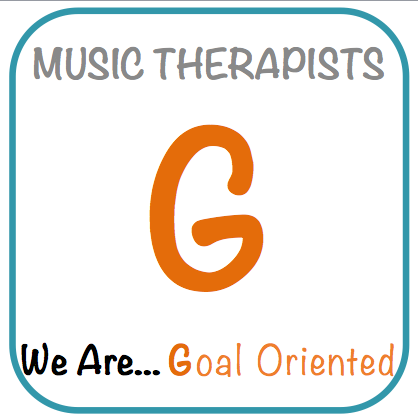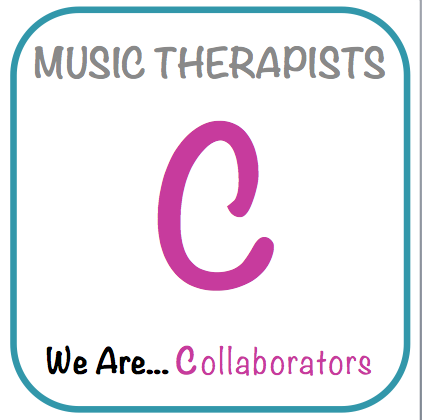If I haven’t emphasized it enough in previous posts, (i.e. We Are… Goal Oriented, Flexible, Data Driven) music therapy is incredibly individualized. Every client, treatment plan, intervention, and session plan is individualized. Though there are standards for music therapy practice and specific intervention that are tested and supported, those standards and intervention sets are often broad and can be manipulated slightly to meet the specific need of each individual. Think about it this way. If you are a client that really enjoys pop music but despises country, it may not be in the best interest of the client to do a movement exercise to or lyric analysis of a country hit. Just like using a 90’s pop song for a child born in 2003 or using a song from 2010 for a reminiscence project of an 80 year-old woman may not be appropriate. However, you won’t necessarily know what is best for that client until you have the opportunity to get to know them. Not every person will respond to an intervention the same way. Individualism also applies to the Read More
Tag: Music Therapy Blog
We Are… Healthful
Music Therapy is not only a wonderful resource for individuals with special needs or illness, it can also be a great tool for people seeking health and wellness. When I have explained music therapy in the past, a typical response has been, “That makes sense! Music definitely can change my mood, motivate me, or help me relax depending on what I’m listening to!” While individual music listening isn’t the premise of music therapy, I can certainly see where people make the connection. They are right, music can help with mood, motivation, and relaxation in every day life, but there are many more benefits to working with a music therapist. Healthy individuals can use music thearpy for stress reduction via active music making, such as drumming, as well as passive listening for relaxation. Music Therapists can facilitate interventions for stress management and relaxation. Music Therapists can also work with clients who are grieving, dealing with chronic pain, chronic illness, depression, stress, or who are looking for spiritual or personal growth. Music therapy can also be used in assisting labor and delivery. Some Read More
We Are… Goal Oriented
GOALS & OBJECTIVES! Those are two key words in the realm of music therapy! GOALS is even an essential word in the AMTA definition of music therapy: “Music Therapy is the clinical and evidence-based use of music interventions to accomplish individualized goals within a therapeutic relationship by a credentialed professional who has completed an approved music therapy program.” After an assessment, music therapists create individualized goals for each client. One of the biggest misconceptions I deal with is the thinking that these goals are music oriented, like learning to play an instrument, when in fact nearly all of the goals are non-musical. Major goal areas include, but are not limited to, the following: emotional well-being physical health social functioning communication abilities cognitive skills motor skills These goals can then be addressed through music-based interventions such as: music improvisation instrument playing receptive music listening song writing lyric discussion music and imagery music performance learning through music MTs continually re-evaluate their clients’ needs, assess their progress, and modify goals as needed. MT interventions and interactions are all directly based on the Read More
We Are… Collaborators
Definition of collaboration: “The process of working jointly with others in an intellectual endeavor to bring about change, and it implies shared responsibility” (Hobson, 2006) Music therapists (MTs) focuses on facilitating positive change and work with a very VERY large network of people to do so! All of our clients have specific goals and objectives that are determined not only by the music therapist but often also by teachers, parents, caregivers, doctors, nurses, and other therapists. MTs collaborate with these individuals to create and carry-out the best treatment plan for each individual. Often, this requires co-treating with other therapists (including occupational therapists, physical therapists, and speech therapists, etc), collaborating with others to create appropriate resources, and communicating with a large team of people instead of just a single client. I love having opportunities to collaborate and co-treat with other professionals. Not only do I get to share my unique expertise and experience, I have the opportunity to learn from others and grow from the interaction. Check out these amazing resources from music therapists talking about Collaboration! Rachel See Smith wrote this Read More
Happy New Year! – 2013 year in review and a new set of goals.
When I started looking back at this past year, I thought it had flown way to quickly and that I hadn’t accomplished very much. Then I started making a list, a quick list of everything I had done, everywhere I had been, and all I had accomplished over the course of 2013. After making a simple mental list, I quickly began to realize just where that year had gone. Here are a couple of the highlights: Updating my office Presenting to the Lincoln, IL Rotary Club, the Council for Exceptional Children, and a large hospice company. Performing with a local band. Celebrating 1 year of being a music therapist Celebrating 1 year of business Was featured as the IAMT member spotlight Starting the On A Good Note website, blog, facebook, twitter, and personal LinkedIn Traveling all over the country Learning to record using Garage Band and releasing over a dozen songs Offering several FREE resources on the website throughout the year AND working on a couple new and exciting opportunities for the coming year! Those will have to wait for Read More




